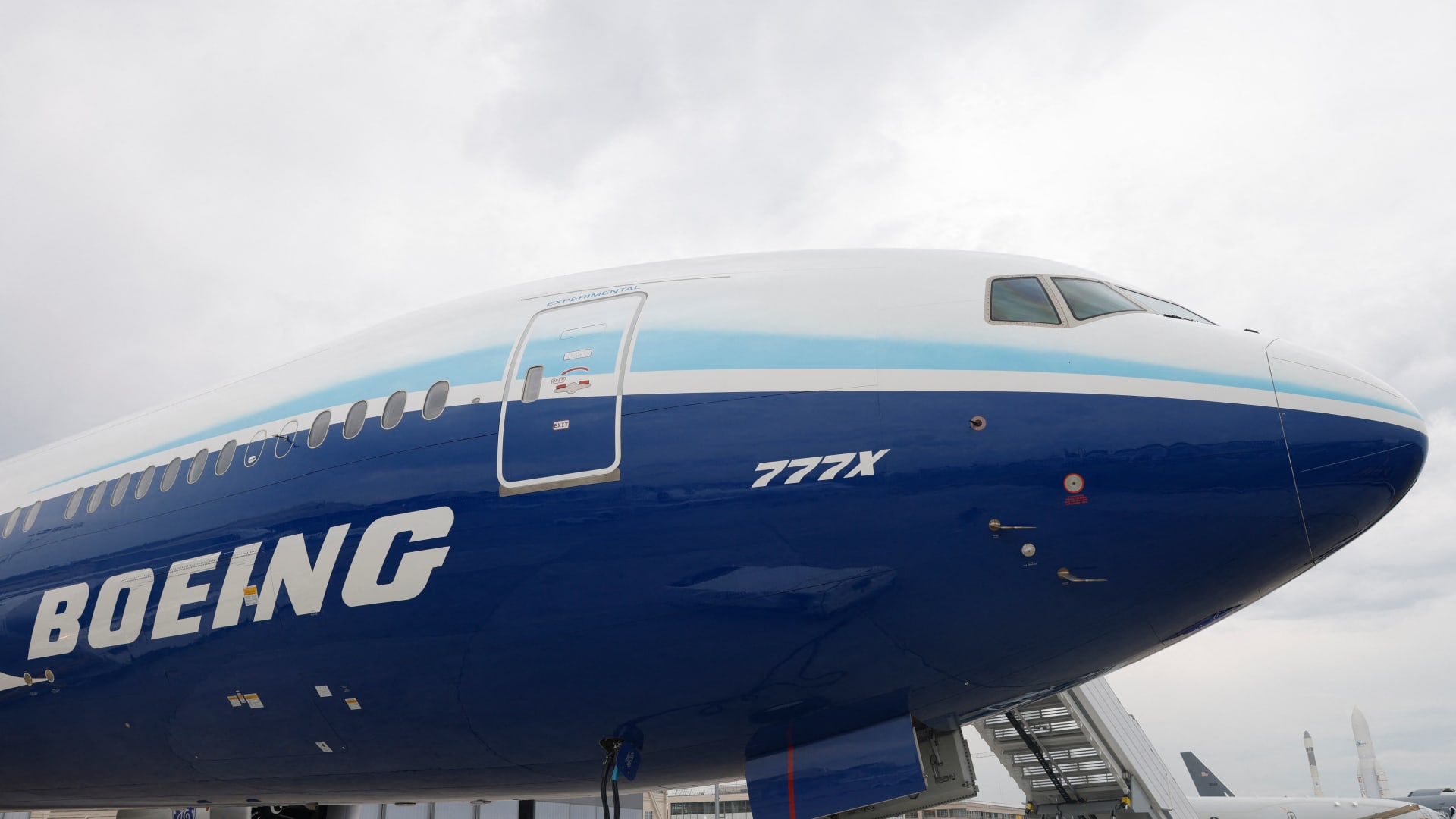A Boeing 777x is displayed during the International Paris Air Show at the ParisLe Bourget Airport, on June 20, 2023.
Geoffroy Van Der Hasselt | AFP | Getty Images
Boeing CEO Dave Calhoun is optimistic about the recovery of travel demand, which he said is stronger than he expected.
“Yes, it is resilient. It’s more resilient than I ever would have imagined coming out of Covid — a lot of pent up demand for just passenger traffic and tourism, and businesses coming back,” Calhoun told CNBC’s “Squawk Box Asia.”
Calhoun said order books and demand for proposals to meet that demand are “as robust as [he’s] ever seen in his career.”
When asked about swirling recession fears, he said those concerns aren’t really popping up in the aviation industry.
If anything, that is the issue we’re all wrestling with: how does the supply chain regain the resilience it had before Covid so that it can meet these demands.
Dave Calhoun
CEO of Boeing
“If anything, that is the issue we’re all wrestling with: how does the supply chain regain the resilience it had before Covid so that it can meet these demands,” he said.
Boeing delivered 35 planes in August, down from 43 aircraft in July. Both Boeing and rival Airbus said supply chain constraints are curtailing their abilities to ramp up production.
In May, the World Travel & Tourism Council had forecast that the global travel and tourism sector will not reach full recovery this year. And while China’s domestic airline capacity has fully recovered, international flight capacity is still less than half of pre-pandemic levels, a Skift Research report showed.
Still, Calhoun said, “I’m actually bullish with respect to my company, and China.”
“They need more lift like everybody else in the world,” he said, adding that he hopes the geopolitical concerns surrounding China will “begin to dissipate a bit.”
As for competition from China’s homegrown C919 jet produced by Comac, Calhoun said it will take a “pretty long time” before it becomes a serious competitor globally for Boeing or Airbus. And even if that was the case, it would not be the “worst thing,” given travel demand.
“We have a giant robust market growing at a very healthy pace,” he said. “So by 2050, honestly, having three competitors to satisfy that is it’s not the worst thing in the world for for aviation. In fact, I view it as a good thing.”

